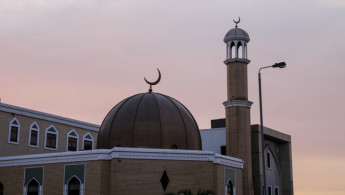Poll shows Muslims 'happier in Britain than other European nations'
British Muslims living in the UK are happier than their co-religionists living in other European nations, a survey commissioned by the Institute for the Impact of Faith in Life (IIFL) has reported.
The survey also found that they feel optimistic about Britain’s future and feel they have the freedom to practise their faith whilst participating in public life.
The research is one of two surveys exploring forms of social belonging, attitudes towards family and community, and views on the degree to which Britain offers opportunities for people to fulfil their potential.
Over half of the respondents (51 percent) reported having a strong sense of belonging in their local community and neighbourhood. This drops to 35 percent for respondents in the wider general population survey.
A majority 71 percent of British Muslim respondents said they believe more work should be done to improve relations between different faith groups, and just 22 percent believed the right amount was being done.
Dr Jake Scott, the secretary of the IIFL, said: “This research comes as a timely intervention in an increasingly confusing public conversation on faith, Britain, and Islam. Our research shows that Muslims feel overwhelmingly optimistic about Britain’s future, are happier here than in most other European nations, and feel that they have the freedom to practise their faith whilst participating in public life.”
More than four in five (83 percent) respondents agreed that compared to other European countries such as France, Germany, and the Netherlands, the UK is a better place for Muslims to practise their faith whilst being involved in wider public life.
British Muslim groups have urged the Home Secretary to withdraw her "deeply divisive, racially charged rhetoric" regarding British Pakistani men and child grooming gangs. https://t.co/r4gIurZSwk
— The New Arab (@The_NewArab) April 12, 2023
This rises to 87 percent for Muslims living in Greater London.
“Here British Muslims are still able to practise their faith openly and freely,” said Nadeem Afzal, from Birmingham, who was one of 28 people interviewed for the report.
“Growing up, the nextdoor neighbours on the right were British Indians, and on the left were a white British family, and all of us got on really well.
“Certainly there are no ‘no-go’ areas that politicians talk about. That’s certainly not the case at all.”
"We are living in a time when calling for an end to violence carried out by a British ally with British complicity makes you a 'terrorist' but cheering on a genocide does not"
— The New Arab (@The_NewArab) February 13, 2024
To stop Muslim 'radicalisation', end UK support for Israel's war on Gaza 👇https://t.co/739LUD7CkP
Salma Khanam, a British Muslim living in East London, says Britain is a “diverse and multicultural society”.
However, some emphasised the “negative portrayals” of Muslims in the media, the increase in anti-Muslim prejudice, and “smaller towns being less welcoming or overtly hostile” in comparison to metropolitan areas.
Khanam, who wears a hijab, said she experienced people looking at her family when in less diverse parts of the country.
Since October 7, Tell Mama found that Islamophobia-related hate has tripled, and Muslim women were targeted in two out of three incidents.





 Follow the Middle East's top stories in English at The New Arab on Google News
Follow the Middle East's top stories in English at The New Arab on Google News


